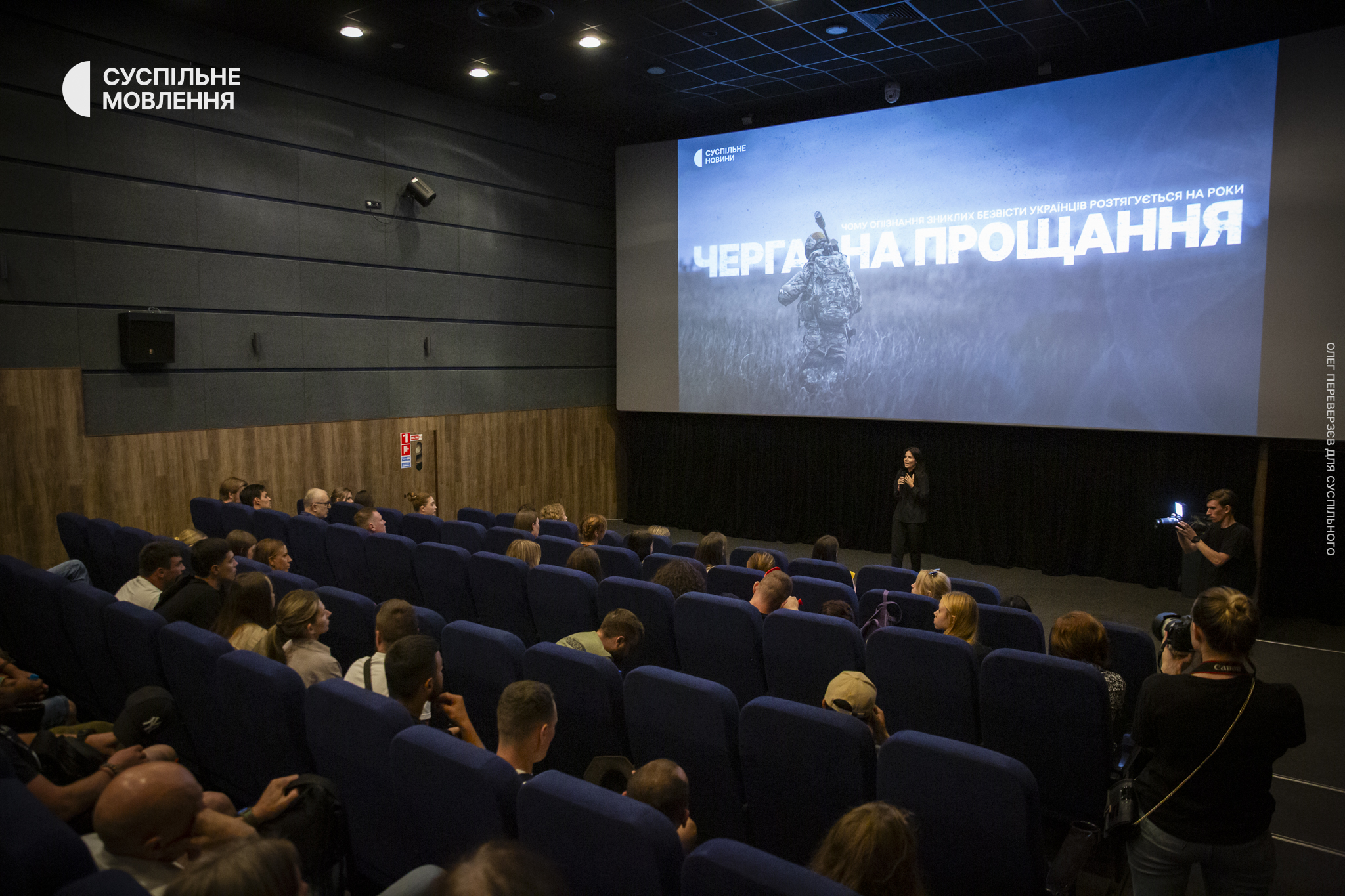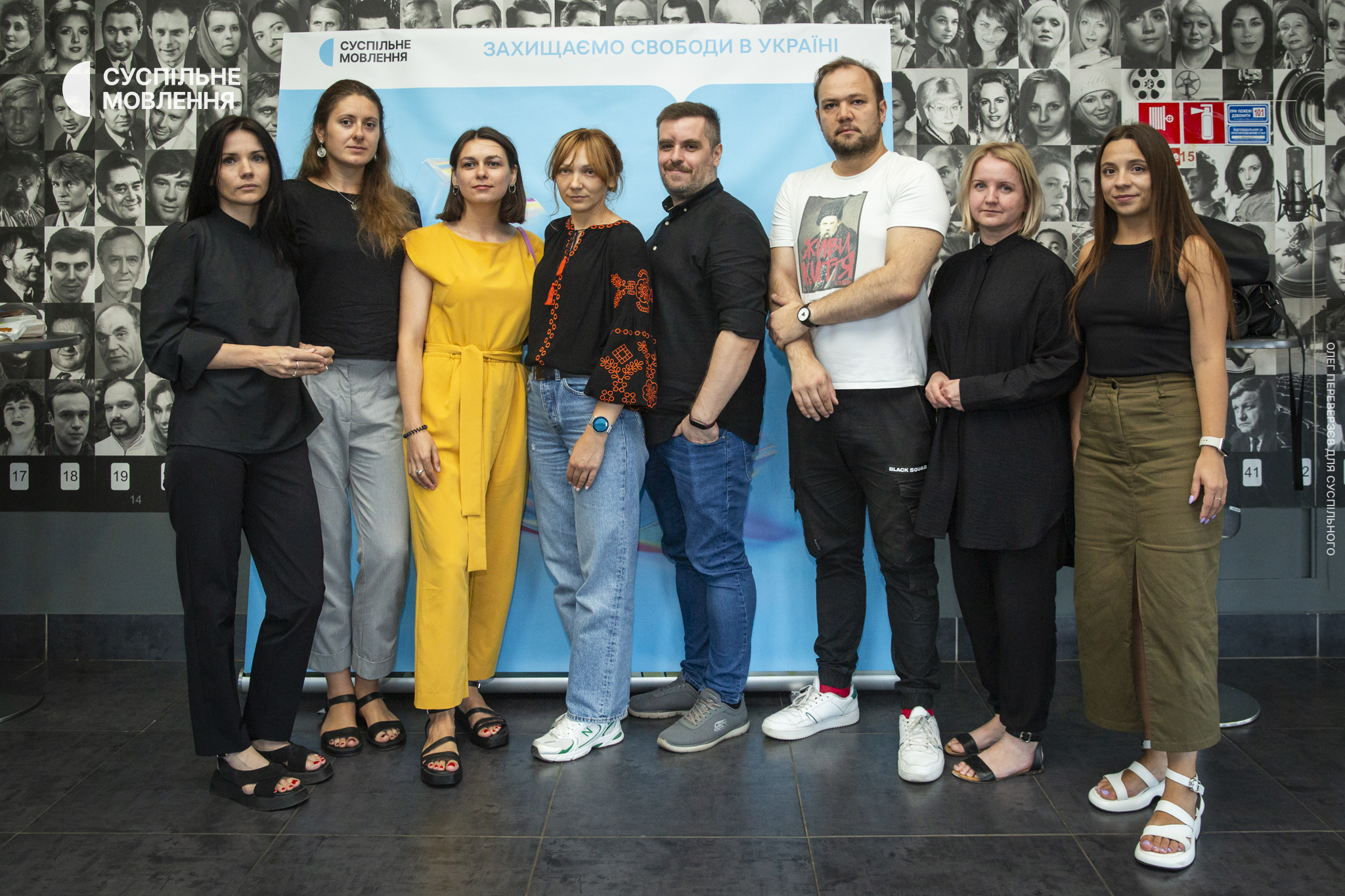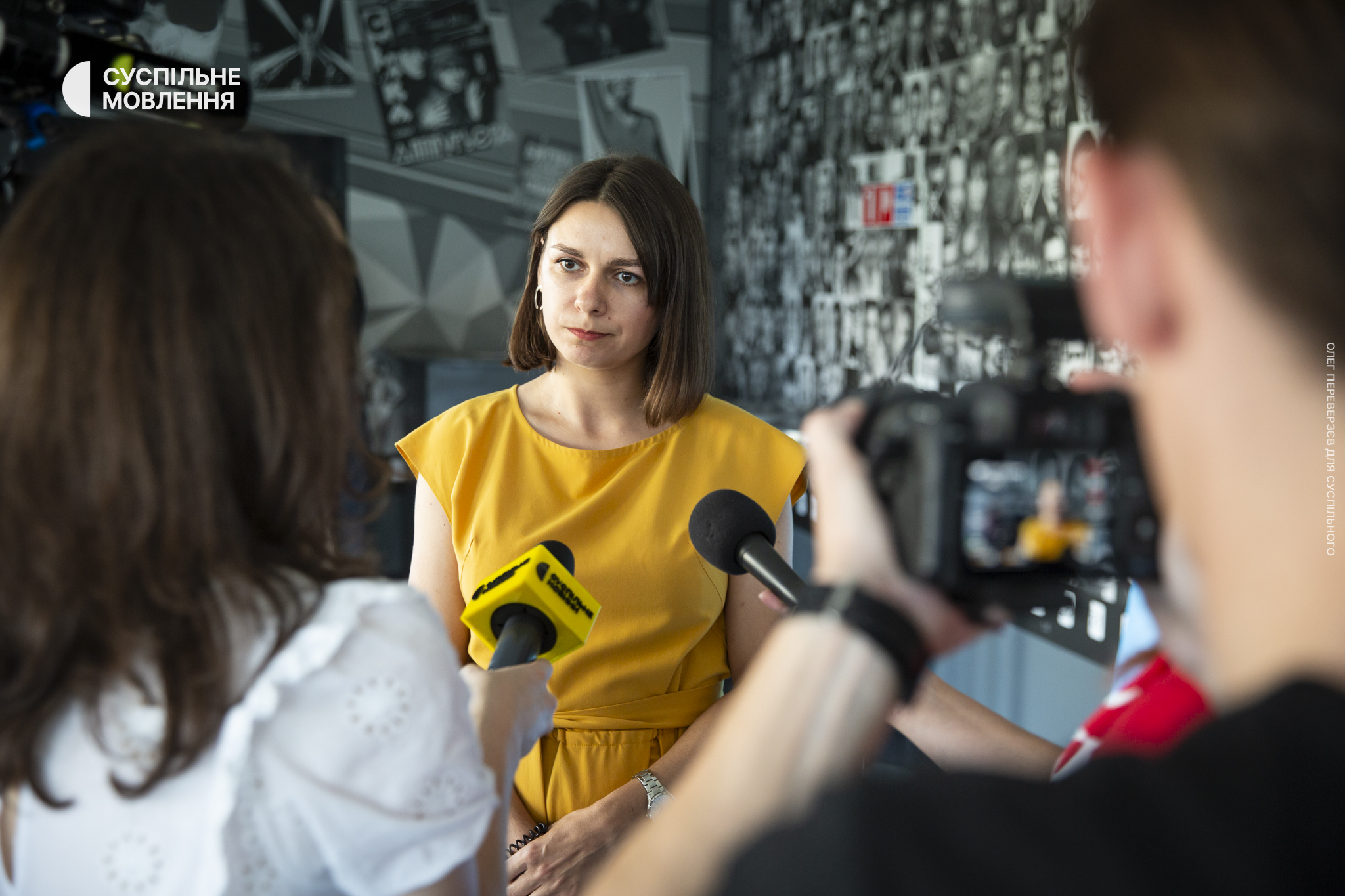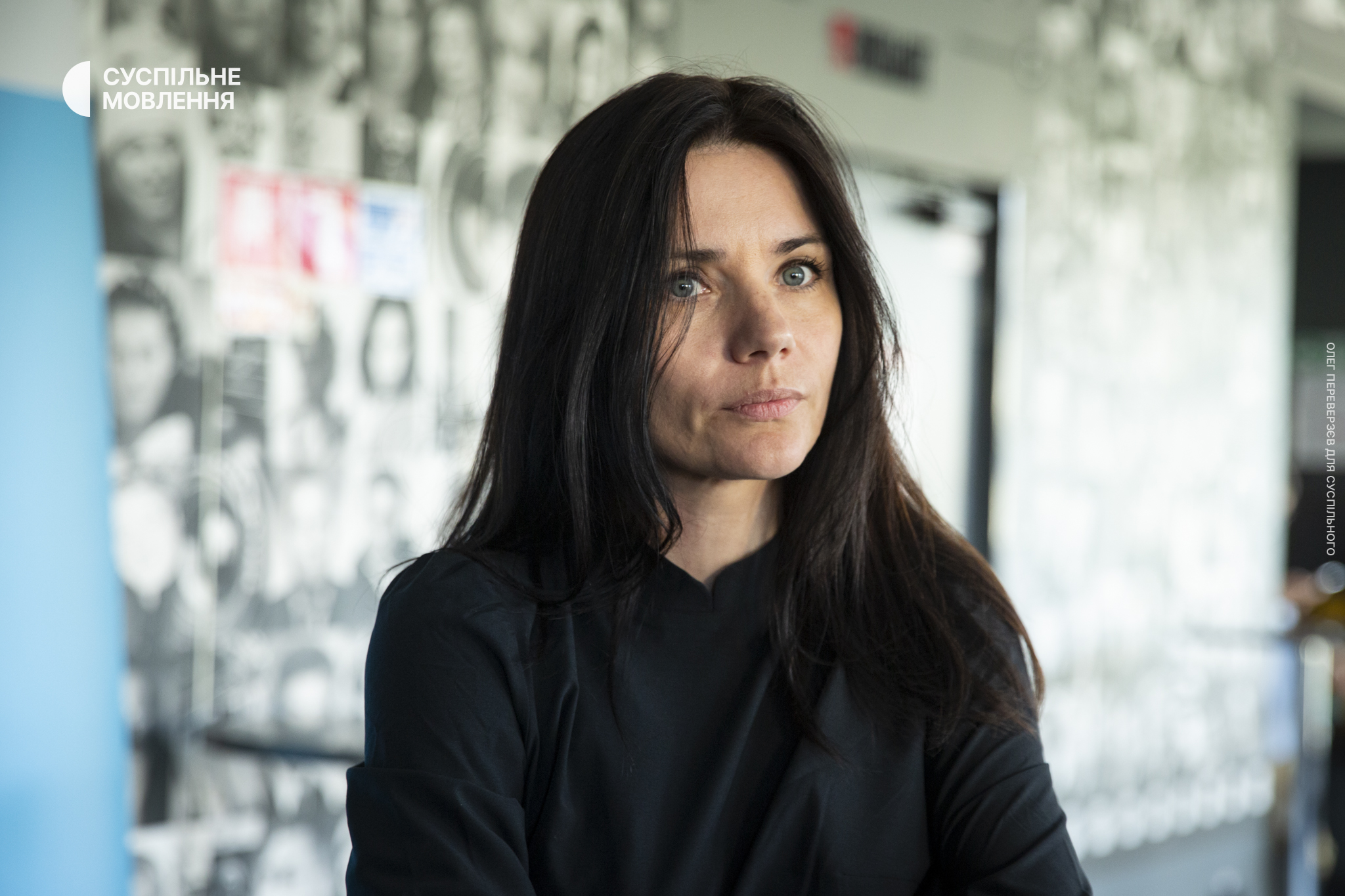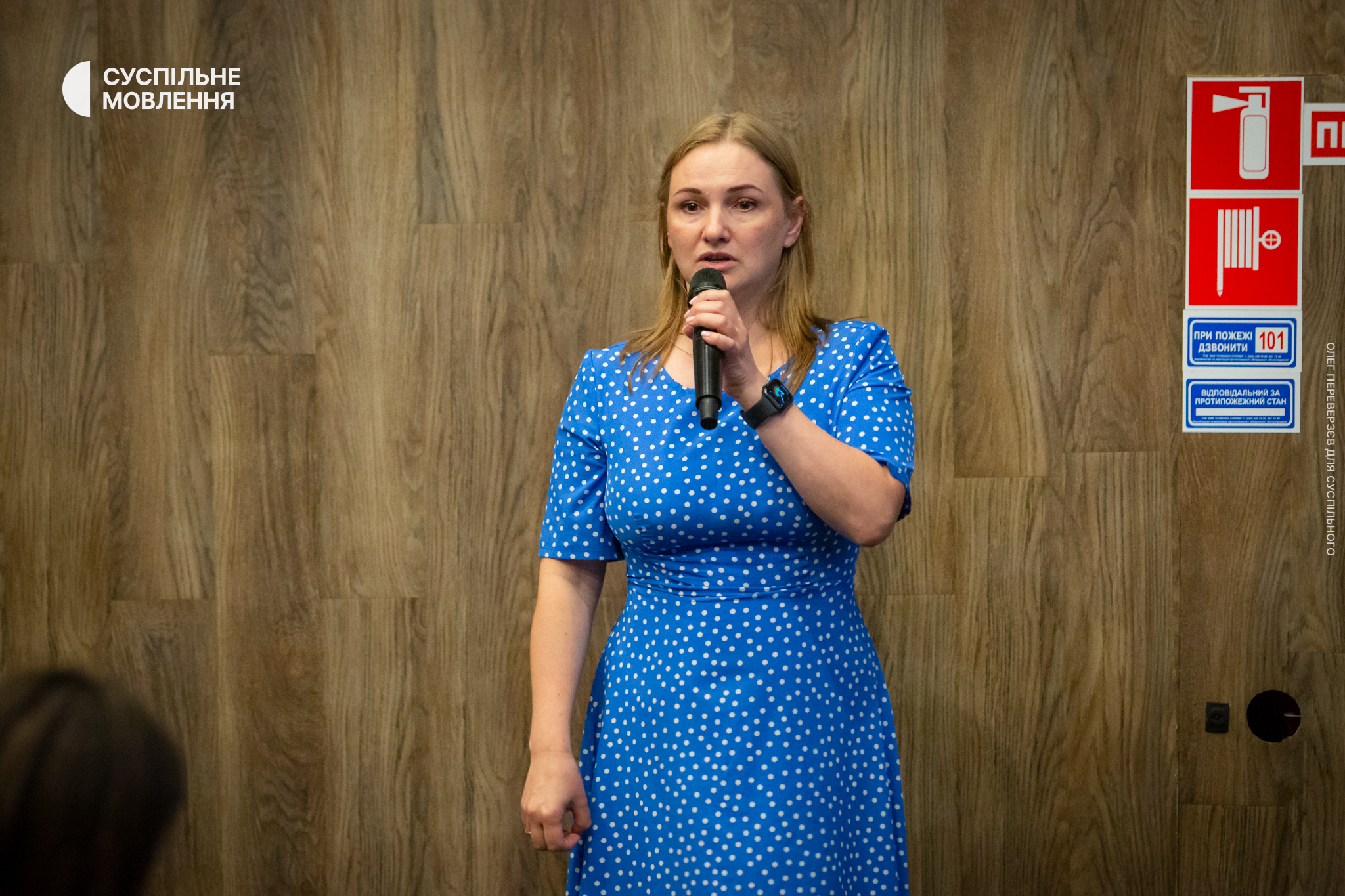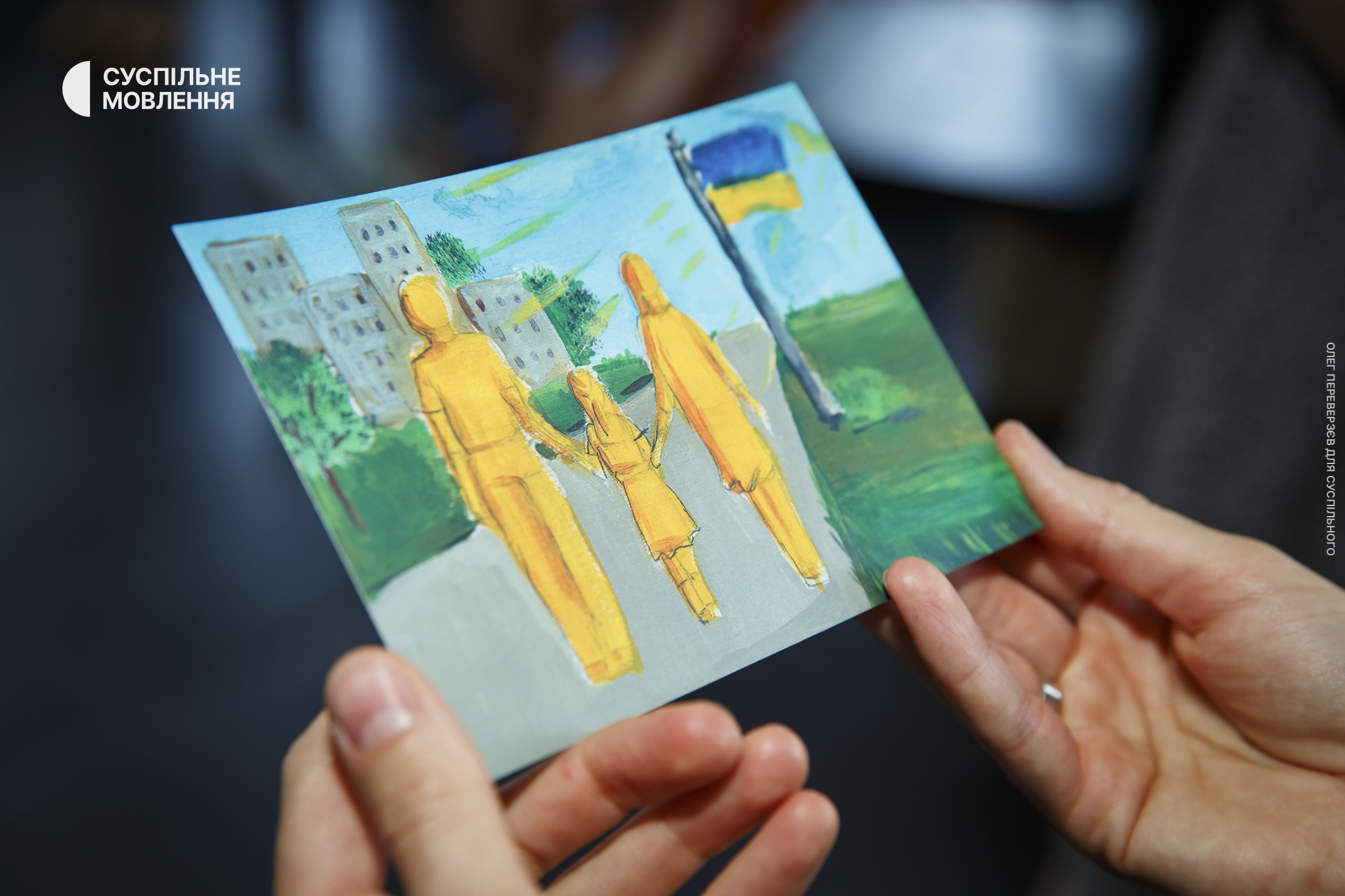Вересень 01, 2023
У Києві провели допрем’єрний показ розслідування «Черга на прощання»
30 серпня у Києві відбувся допрем’єрний показ розслідування «Черга на прощання». Ця стрічка розповідає про десятки тисяч особистих трагедій: про шлях пошуку, ідентифікації за ДНК та поховання загиблих через війну в Україні. На прикладі історії головної героїні фільму, Ірини Карась, розслідувачі розказали про проблеми тих українців, які довгими тижнями, місяцями, а іноді роками очікують своєї черги, аби мати можливість попрощатися з найріднішими.
На передпоказ фільму завітали розслідувачі, які працювали над стрічкою, а також безпосередні герої стрічки Ірина Карась та Андрій Чернявський — старший групи пошуку та евакуації «На щиті», військові з бригади «Азов», військові журналісти та волонтери.
Серед гостей також були представники благодійних організацій та фондів «Серце Азову», «Восток SOS», «Жіночий ветеранський рух», «Асоціація родин захисників "Азовсталі"», «Фонд підтримки родин захисників "Азовсталі"», Медійної ініціативи за права людини, Міжнародної комісії з питань зниклих безвісти.
Також на презентації були представники Міністерства юстиції України, Міністерства з питань реінтеграції тимчасово окупованих територій, Національної гвардії України, Національної поліції України та Уповноважена у справах Європейського суду з прав людини.
Ще у 2014 році Україна постала перед новою для себе проблемою: зниклі безвісти військові, цивільні, їх пошук та ідентифікація. Питанням пошуку загиблих займається гуманітарний проєкт ЗСУ «На щиті». Проблема ДНК-профілювання загиблих існує й нині.
«Історія Ірини — про те, з чим зіштовхуються сім'ї загиблих військових після того, як пережили найстрашніше — звістку про смерть рідної людини. Розповідаючи про ціну втрати однієї родини, ми привертаємо увагу до проблеми, яку належить вирішити. З Іриною ми познайомилися, коли її загиблого чоловіка вже повернули з тимчасово окупованих територій під час обміну. Ми супроводжували її у взаємодії з різними державними органами, необхідними для підтвердження факту смерті та проведення ДНК-експертизи для ідентифікації загиблого. Чекання цих експертиз розтягується на місяці — й для родичів загиблих це незагоєна рана, яку знову роз’ятрюють. Проблема тривалих очікувань існує давно, але й через півтора року великої війни вона не розв’язана», — розповідає авторка фільму Ярослава Тимощук.
Різні міжнародні організації, готові надавати свою допомогу зі збором ДНК-зразків та експертизи для України, одна з яких — Міжнародна комісія з питань зниклих безвісти. Утім, за українським законодавством, проводити ДНК-експертизи, що допомагають ідентифікувати загиблих, мають тільки українські державні інституції. Експертна служба МВС залишається єдиною в Україні, яка досліджує збіги між ДНК живих та померлих. За словами Метью Холідея, директора європейських програм МКЗБ, угода, яка могла б легітимізувати поміч зі сторони цієї комісії в Україні, «застрягла» між Міністерством реінтеграції та Міністерством закордонних справ.
«З початку повномасштабного вторгнення наша команда зробила п’ять розслідувань про воєнні злочини росіян. Це було набагато простіше, ніж робити розслідування про те, як працює українська система. Про те, як вона вчергове закриває очі на дуже очевидні виклики. Про те, як проблему і допомогу, яку пропонують, можна просто футболити між міністерствами. Ця історія затягування, небажання брати на себе відповідальність, що виливається в довгі очікування. В дні, в тижні, в місяці. І кожен з цих днів, кожна з цих годин, це окрема подарована надія: а раптом безвісти зникла людина все-таки жива. Однак ця надія не дає крила. Ця надія кожного дня по краплинці руйнує», — розповідає редакторка фільму Інна Білецька.
Передпоказ розслідування «Черга на прощання» відвідала Ольга Решетилова — співзасновниця Медійної ініціативи за права людини та координаторка напряму «Війна і правосуддя».
«Сьогодні у Києві, під Аркою Свободи українського народу, була акція до Міжнародного дня зниклих безвісти. На ній зібралися тисячі родин, які досі шукають своїх рідних, вони все ще чекають на можливість з ними попрощатися. Ці родини мають чимало проблем в комунікації з державними органами. Їм необхідні елементарні юридичні консультації, тому що розібратися в цих заплутаних схемах дуже складно, адже у нас немає “єдиного вікна”.
Очевидно, щось в державі працює не так, і нам потрібно це змінити. Тому що це тисячі маленьких трагедій, це тисячі історій, наповнених болем і надзвичайним сумом. Я надзвичайно вам дякую за фільм, дякую Ірині, що поділилася своєю історією, і низький уклін перед усіма, хто чекає. Ми будемо робити все, щоб ви мали можливість з гідністю попрощатися зі своїми рідними», — коментує Ольга Решетилова.
Кожен із гостей передпоказу розслідування «Черга на прощання» отримав листівку, намальовану 10-річною Анастасією Карась. Через історію її сім’ї команда розслідувачів розповіла про проблеми, з якими стикаються військові під час пошуку побратимів, рідні під час здачі та супроводження своїх ДНК-тестів, дружини та найближчі у виборюванні можливості поховати загиблих. Євген Карась був командиром снайперської групи, він загинув 7 березня 2022 року під час захисту Маріуполя.
«Моя історія — маленька краплинка у цьому величезному морі болю, страждань та очікування. На цій листівці — малюнок моєї маленької Насті. Вона завжди мріяла, що ми завжди будемо ось так ходити гуляти в парку (як на малюнку — ред.). Але у нас цієї можливості було дуже мало. Моя війна не почалась 2022 року. Вона почалася ще у 2014 році», — коментує Ірина Карась, головна героїня фільму.
Більше фото з події можна переглянути тут.
Над стрічкою працювали:
- Ярослава Тимощук — авторка фільму;
- Інна Білецька, Алла Садовник — редакторки фільму;
- Світлана Коваль — операторка-постановниця;
- Олександр Стратонов — режисер монтажу та композитор;
- Владислав Васильченко — режисер-консультант;
- Алла Садовник — відповідальна за фактчекінг;
- Людмила Панкратова — юридична експертка.
Суспільне Мовлення — найбільше незалежне медіа в Україні, до якого входять загальнонаціональні телеканали Перший, Суспільне Культура, супутниковий телеканал Суспільне Новини, радіостанції Українське Радіо, Радіо Промінь, Радіо Культура, а також національна мережа місцевих каналів. Новини про Україну та регіони читайте на сайті suspilne.media та діджитал-платформах.
Фото — Олег Переверзєв
Pre-premiere demonstration of Queue to Say Goodbye investigation film held in Kyiv
On the 30th of August, the pre-premiere screening of Queue to Say Goodbye, an investigation film, took place in Kyiv. This film tells the story of tens of thousands of personal tragedies: the search for, identification by DNA and burial of those killed due to the war in Ukraine. Based on a story of the film's protagonist, Iryna Karas, the investigators told about the problems of those Ukrainians who wait for long weeks, months, and sometimes years for their turn to say goodbye to their loved ones.
The pre-screening was attended by the investigators who had worked on the film, as well as the film's protagonists Iryna Karas and Andrii Cherniavskyi, a senior member of the search and evacuation team Na Shchyti, soldiers from the Azov Brigade, military journalists and volunteers.
Among the guests there also were representatives of charitable organizations and foundations such as "The Heart of Azov", "Vostok SOS", "Women's Veterans Movement", "Association of Families of Azovstal Defenders", "Azovstal Defenders Family Support Fund", Media Initiative for Human Rights, and the International Commission on Missing Persons.
The presentation was also attended by representatives of the Ministry of Justice of Ukraine, the Ministry of Reintegration of the Temporarily Occupied Territories, the National Guard of Ukraine, the National Police of Ukraine and the Commissioner for the European Court of Human Rights.
Back in 2014, Ukraine faced a new problem, that was missing military and civilians, their search and identification. "Na Shchyti", the humanitarian project of Armed Forces of Ukraine, deals with the search for the dead. The problem of DNA profiling of the dead still exists today.
"Iryna's story is about what families of fallen soldiers face after they have experienced the worst - the news of death of a loved one. By talking about the cost of losing one family, we draw attention to the problem that needs to be solved. We met Iryna when her deceased husband was brought back from the temporarily occupied territories during the exchange. We supported her in interacting with various state authorities necessary to confirm the fact of death and conduct DNA testing to identify the deceased. The wait for these examinations lasts for months, and for the relatives of the deceased one it is an unhealed wound that is being torn open again. The problem of long waits has existed for a long time, but even after a year and a half of the great war, it has not been solved yet," Yaroslava Tymoshchuk, the author of the film, says.
Various international organizations are ready to provide their assistance with the collection of DNA samples and expertise for Ukraine, one of which is the International Commission on Missing Persons. However, according to Ukrainian law, only Ukrainian state institutions are allowed to conduct DNA examinations to help identify the dead. The Ministry of Internal Affairs' expert service remains the only one in Ukraine that examines DNA matches between the living and the dead. According to Matthew Holliday, Director of The European Programmes at the ICMP, the agreement that could legitimize the commission's assistance in Ukraine is "stuck" between the Ministry of Reintegration and the Ministry of Foreign Affairs.
"Since the beginning of the full-scale invasion, our team has done five investigations of Russian war crimes. It was much easier than investigating how the Ukrainian system works, how it once again turns a blind eye to very obvious challenges, how a problem and help offered can simply be switched from one ministry to another. This is a story of procrastination, unwillingness to take responsibility which results in long waits, i.e. days, weeks, months. And each of these days, each of these hours is a separate hope given to us: what if a missing person is still alive? And this hope does not give wings. This hope destroys every day, drop by drop," Inna Biletska, the film's editor, says.
Olha Reshetylova, co-founder of the Media Initiative for Human Rights and coordinator of the War and Justice project, attended the pre-screening of Queue to Say Goodbye investigation film.
"Today in Kyiv, under the Arch of Freedom of the Ukrainian people, there was an action on the occasion of the International Day of the Disappeared. It brought together thousands of families who are still looking for their loved ones, they are still waiting for the opportunity to say goodbye to them. These families have a lot of problems with communication with the state authorities. They need basic legal advice because it is very difficult to understand these intricate schemes, as we do not have a 'single window'.
Obviously, something in the state is not working properly, and we need to change it. Since these are thousands of small tragedies, thousands of stories filled with pain and extreme sadness. I thank you very much for the film, I thank Iryna for sharing her story, and I bow down before everyone who is waiting. We will do our best to ensure that you have an opportunity to say goodbye to your loved ones with dignity," Olga Reshetylova comments.
Each of the guests at the pre-screening of Queue to Say Goodbye investigation film received a postcard drawn by 10-year-old Anastasiia Karas. Through the story of her family, the investigative team told about the problems faced by the military in searching for their comrades-in-arms, relatives in taking and following up on their DNA tests, wives and loved ones in fighting for the opportunity to bury the dead. Yevhen Karas was a sniper team leader who died on 7 March 2022 while defending Mariupol.
"My story is a small drop in this vast sea of pain, suffering and expectation. This postcard is a drawing of my little Nastia. She always dreamed that we would always go for a walk in the park like this (Ed.: as in the picture.) but we had very little opportunity to do so. My war did not start in 2022. It started back in 2014," Iryna Karas, the film's protagonist, comments.
More photos from the event can be found here.
The film was made by:
- Yaroslava Tymoshchuk – the author of the film;
- Inna Biletska and Alla Sadovnyk – film editors;
- Svitlana Koval – director of photography;
- Oleksandr Stratonov – film editor and composer;
- Vladyslav Vasylchenko – film consultant;
- Alla Sadovnyk – in charge of fact-checking;
- Liudmyla Pankratova – legal expert.
Suspilne Ukraine is the largest independent media broadcaster in Ukraine which includes the national TV channels like Pershyi and Suspilne Kultura, satellite TV News channel Suspilne Novyny, Ukrainian Radio, Radio Promin, Radio Kultura radio stations, as well as a national network of local channels. For news about Ukraine and the regions, please visit suspilne.media and its digital platforms.
Photos by Oleh Pereverziev


